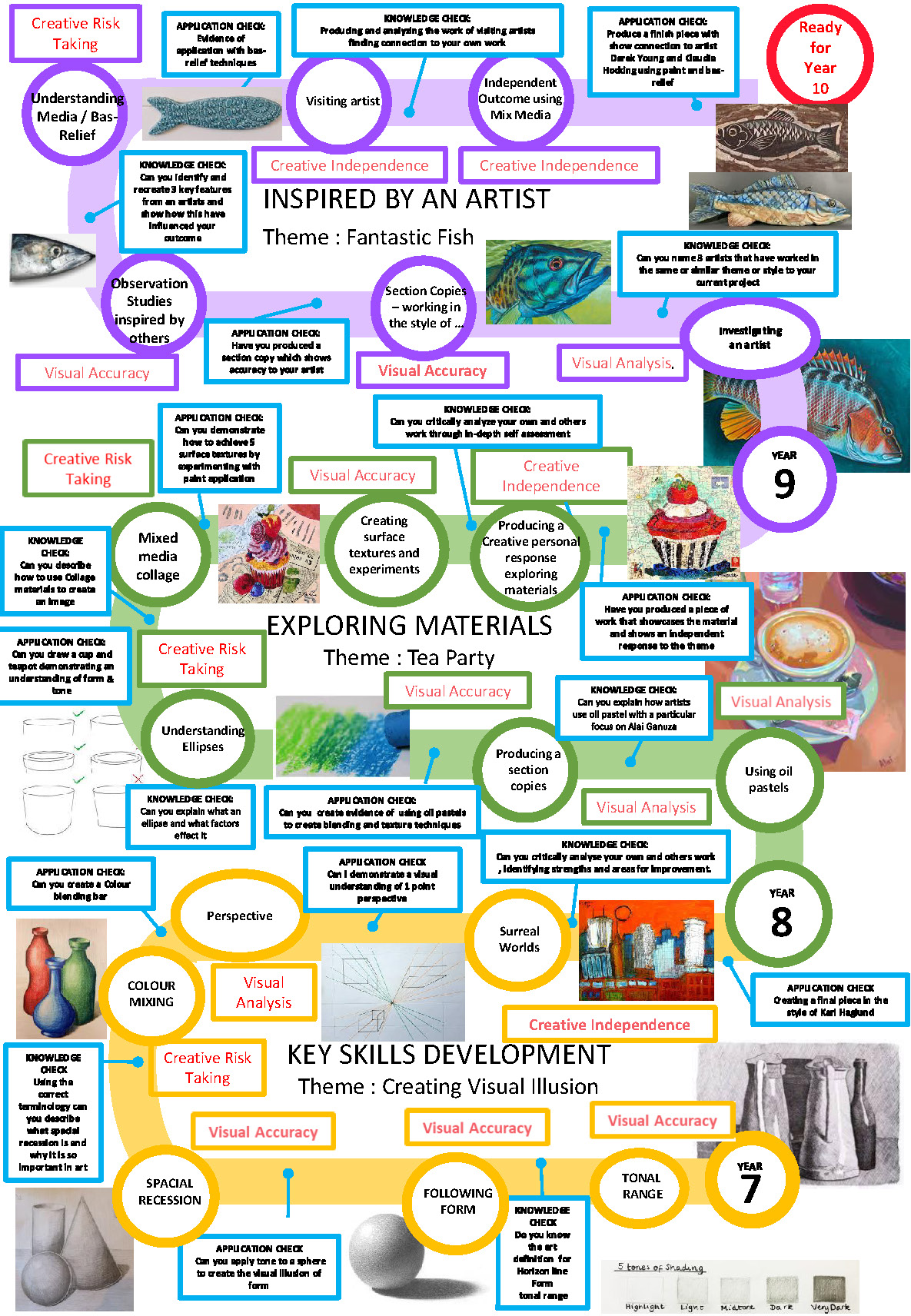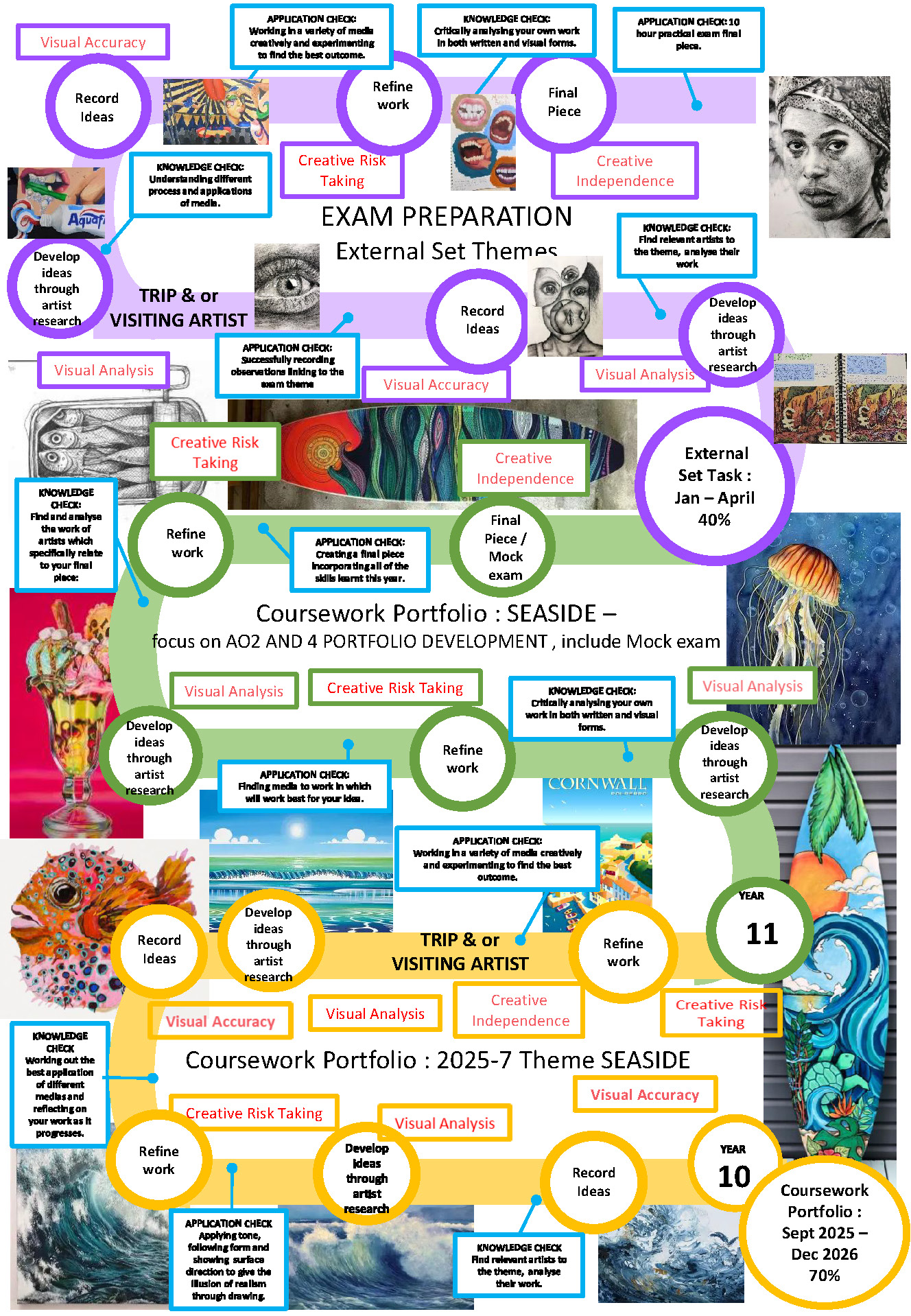Art and Design
Every human is an artist.
– Don Miguel Ruiz
Art Curriculum Intent Statement
At Looe Community Academy, our Art curriculum is designed to spark curiosity, nurture creativity, and empower every learner to think deeply and work ambitiously. We believe that knowledge in art is connected, not fragmented, so our curriculum builds meaningful links between skills, concepts, and cultural contexts, enabling students to see patterns and purpose in what they create and study.
Central to our curriculum are the big ideas of Drawing & Representing, 3D Form & Communication, Colour, and Narrative. These concepts underpin the projects we design and the discussions we foster, helping students explore how artists communicate ideas, emotions, and stories across time and culture. Through these lenses, learners develop visual accuracy, analytical thinking, and the confidence to take creative risks.
We aim to provide high challenge with low threat, creating a culture where students feel safe to experiment, explore big ideas, and develop their own artistic voice. Through rich encounters with diverse artists—from classical masters to contemporary innovators—students learn to question, interpret, and respond with originality. They study techniques and traditions while engaging critically with themes such as identity, perspective, and imagination.
Our curriculum prioritises technical skill, creative independence, and academic study of art. Students learn the craft of drawing, colour theory, and composition while developing curiosity through artist research and contextual understanding. They are encouraged to ask questions, make connections, and express themselves with clarity and confidence, preparing them for life beyond the classroom.
Ultimately, our intent is to ignite a lifelong love of art, equipping students with the skills, knowledge, and creativity to thrive as thoughtful makers, critical thinkers, and imaginative problem-solvers in an ever-changing world.
Curriculum Pathways


Focused Curriculum Contextual Routines
- Visualiser
- Reading
- Independent development
- Peer learning through – turn and talk
- Modelling
Additional Opportunities Beyond the Classroom
- Artist in Residence
- Artist’s through remote invitation
- Art Gallery local
- Real life art competitions


